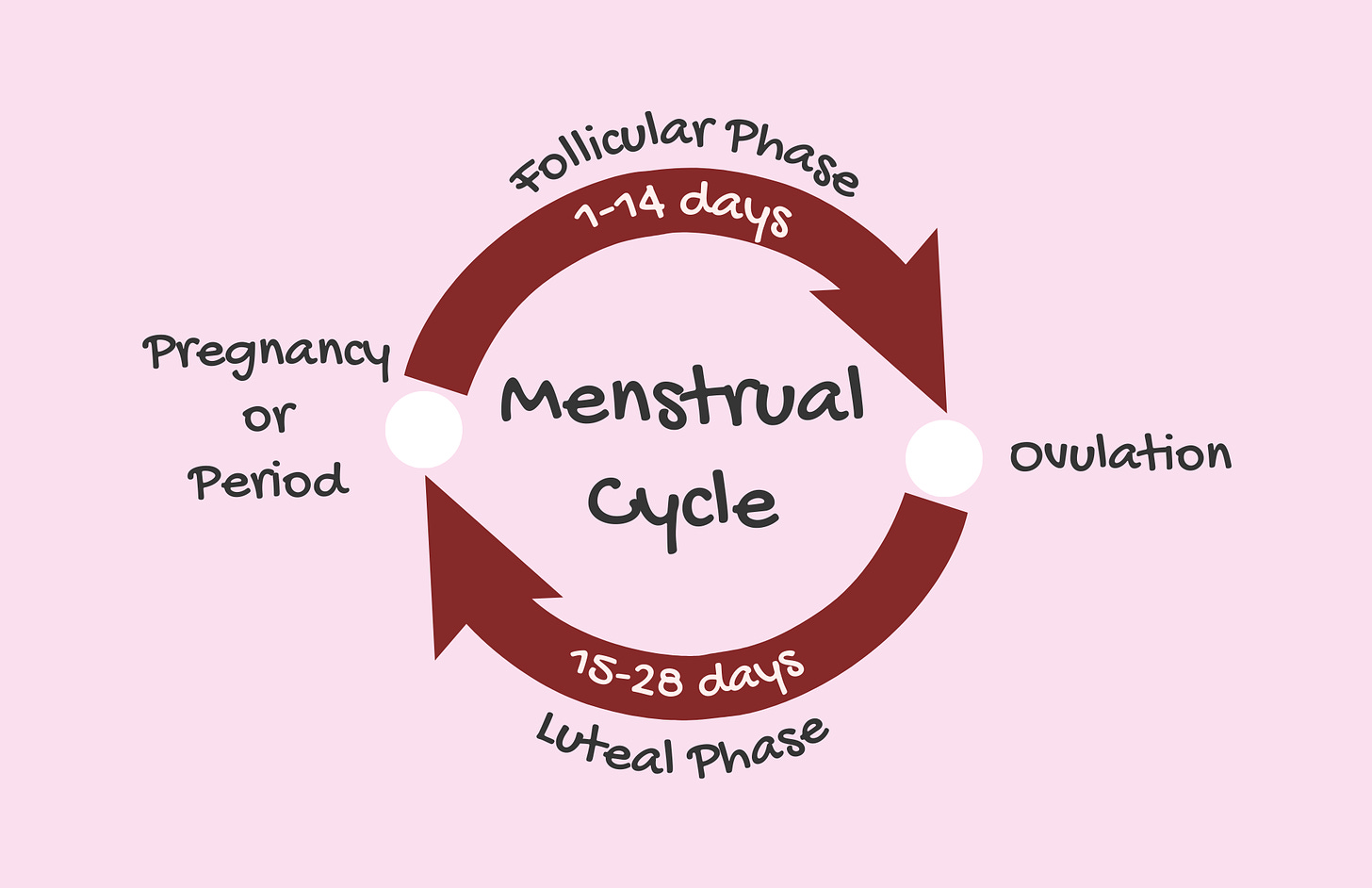How Do Hormones Impact the Menstrual Cycle?
There are over 50 hormones in the human body that send signals to organs and tissue to coordinate different bodily functions.
Menstruation involves its own set of hormones, and they affect not only the menstrual cycle but the body as a whole.
In order to understand the menstrual cycle, it’s important to know the functions and influence of each hormone.
So what really happens with your hormones when you menstruate? Here’s a breakdown.
What is the menstrual cycle?
The menstrual cycle is a “physiological process” governed by four primary hormones: luteinizing hormone (LH), follicle-stimulating hormone (FSH), estrogen, and progesterone.
On average, it takes the body 28 days to go through the full cycle, but it can range from 21 to 35 days.
The cycle itself includes:
The follicular phase, which is the growth of follicles in the ovaries that contain eggs,
Ovulation, the most fertile point of the cycle during which an egg enters the fallopian tubes,
The luteal phase, which is the formation of the corpus luteum that produces pregnancy-preparing hormones, and
Either pregnancy (if the egg is fertilized) or the shedding of the uterine lining
What does each hormone do?
FSH is released by the pituitary gland during the follicular phase, and its function is to stimulate the ovaries to begin maturing the eggs in the follicles. It decreases after ovulation.
Estrogen is released by the maturing eggs in the ovaries during the follicular phase, and it triggers the thickening of the uterine lining to prepare for pregnancy, as well as the secretion of LH. Levels peak right before ovulation begins.
LH is produced by the pituitary gland, and it triggers a small surge of testosterone to boost libido for ovulation. It decreases after ovulation.
Progesterone is produced during the luteal phase by the corpus luteum, which is the remnants of the follicle that produced the egg in the ovary. If pregnancy occurs, it will strengthen the uterine lining, but if there is no pregnancy, levels will drop so the lining will shed.
What is a hormone imbalance?
A hormone imbalance is when the levels of one or more hormones are either too high or too low. It can be caused by a variety of factors:
developmental phases like puberty and menopause,
increased stress or new medication use,
or even tumors or other illnesses.
Often, having even slightly too much or too little of a hormone can have major effects on the body.
For example, low estrogen and low progesterone levels can cause period abnormalities, decreased sex drive, insomnia, headaches, and other body symptoms. Low estrogen can lead to mood and skin disorders, and even heart disease or osteoporosis.
What should I do if I might have a hormone imbalance?
Hormone imbalances can be diagnosed with a blood test and can be treated from there.
There are natural ways to address slight hormone inconsistencies, like getting enough sleep, adjusting your diet, exercising regularly, and managing stress.
However, seeing a doctor is best in order to prevent further complications down the line. Endocrinologists specialize in the endocrine system and hormones, but even seeing your general practitioner first can get the ball rolling.
It’s a good idea to track symptoms and cycle details—using either a tracking app, a notebook, or any other method—before heading to a doctor to make sure you can provide as much detail as possible to get as much help as possible.




